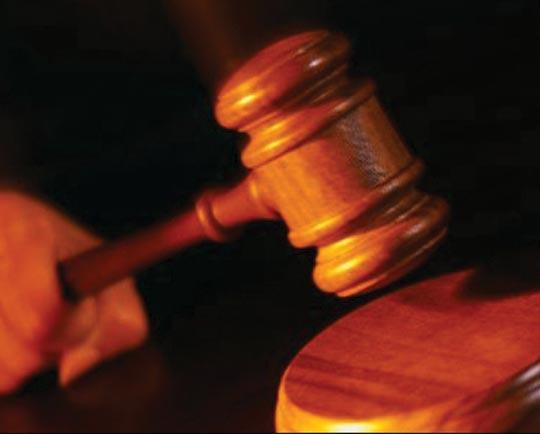Buy To Let
Top tips for buying a property at auction

Follow this essential advice for the best chance of buying success.
Buying a house at auction is gaining popularity, as increasing numbers of buyers realise there are serious bargains to be found.
Auctions are a good way to pick up unique properties, like old schools and disused churches, and therefore are a good place to start if you’re looking for a project or want a home with a difference.
Another good reason to consider buying a property from auction is that you can avoid being ‘gazumped’ because when the hammer falls, the deal is done. Gazumped is when another buyer swoops in with a slightly higher price than yours, and despite the seller accepting, they decide to sell to the higher offer, regardless of how much the proceedings have cost you so far.
It is worth noting that those looking to buy in London will generally find few good properties at auction, as demand for the capital’s properties is so great.
If you are heading to an auction, it wouldn’t hurt to go armed with these top tips from the National Association of Valuers and Auctioneers (NAVA) and the National Association of Estate Agents (NAEA):
• When buying at auction it is vital to have done thorough research of the property beforehand. Ensure you check the details of the property in the auction catalogue and the legal pack. If you are serious in purchasing the property, it’s always a good idea to ask your solicitor to also have a look through the pack.
• Visit the property. See with your own eyes what the property actually looks like from the inside and out. Some properties will require more work than others so it is important you are confident in the condition of the property before you bid. If you have any doubts after you have done your research and visited the property, our advice would be not to bid.
• Ask the estate agents. Ask estate agents in the area what other properties in the vicinity have fetched so that you get a good idea of how much properties really cost in that locale.
• Have the necessary finance in place. Having a mortgage in principle before bidding at auction is very important. If you are successful, you will be required to pay a deposit of 10% immediately and the remaining balance within 28 days. You should make certain with your lender that they can provide the funds in the allotted time. If you don’t complete, you will forfeit the deposit.
• Don’t forget the costs. Make sure you have enough to cover the extra costs that are involved with buying a property. You need to consider stamp duty, legal fees and surveyors’ costs. Some auctioneers also charge a ‘buyer’s fee’ which is around 1.5% of the sale price plus the listing admin fee. All of this needs to be taken into consideration.
• If you really like the property, make an offer. Some vendors are open to this prior to auction day so it is always worth making an offer. Buyers must remember that if the offer is accepted they will still need to proceed on auction terms. It is not a case that it will proceed as a traditional sale if the offer is accepted before auction day.
• Arrange a survey. Surveyors are trained professionals who will pick up on damage buyers may miss. They will also ensure any structural damage and issues are picked up potentially saving the buyer thousands.
• Go to auction. Go to a few auctions as an observer just to familiarise yourself with the process and how it works.
• At the auction of the property you want, arrive early. Any additional information about the property will be available in an ‘Addendum’ or will be announced by the auctioneer immediately before the auction itself. Such alterations may have an impact on your decision to buy the property.
• Position yourself in a visible area and bid clearly, you will always be given ample time to make your bid so there is no need to panic. If you are unable to attend the auction in person you can always register to bid by telephone or set a proxy bid.
• Stand out. The auction room is usually very busy and noisy. In order for your bid to be recognised it is important you are clear in your bidding. Do not bid more than you can afford because once the gavel is struck, a binding contract is formed.
• Bring identification with you to the auction. If you win, you will be asked to produce your passport or driving licence and a utility bill as proof of residence. You will also need pay 10% of the purchase price.
• Set a limit and stick to it. If you do not get the property you were after do not worry. Auctions are held regularly and there is always a good flow of stock. Keep up to date with future auctions and catalogues, a list can be found on the NAVA website to help you find a reputable agent.
• Look out for unsold lots. This can be a good way to pick up a real bargain as both the seller and the auctioneer will generally be keen to sell and may accept a lower offer.